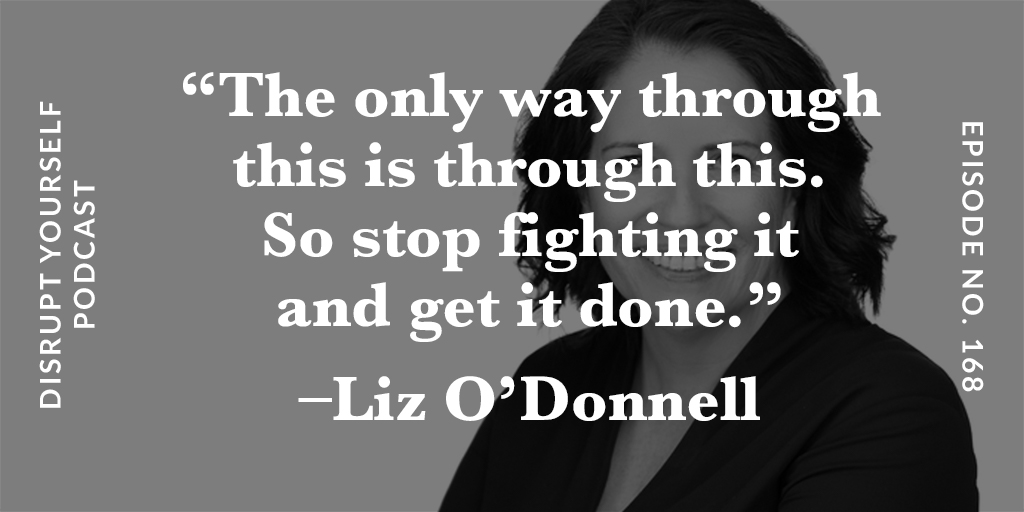Liz O’Donnell remembers well the day that her latest book, Working Daughter, came to her.
Liz had taken a vacation day in order to help her mother go to a doctor’s appointment. Before driving the hour and 15 minutes to meet her mother, Liz started her day at 6:00 am to take care of her own kids and then spent time sending emails to coworkers and clients to give herself some air cover – even dictating a full magazine article she needed to write later as she drove.
Then, at the doctor’s appointment, she was grilled by the doctor who demanded to know why she wasn’t taking better care of her mother. Which was followed by lunch with her mom, a trip to the pharmacy, helping her dad back at the house, the drive home, writing the magazine article, and a speaking engagement on how to balance everything as a new mom. On a vacation day. That started at 6:00 am and ended at 11:00 pm.
As she went home that night, Liz thought, lots of things are in place to help working mothers, but who is going to help working daughters? With jobs and kids and spouses and lives, who are suddenly needed to help care for aging parents?
When we are thrust into situations we don’t expect or don’t choose to be in, frustration often follows. Though she loved her parents, Liz found herself frustrated at the caregiver role she was thrust into. But as time went on, she learned to protect her energy as a caregiver, and as her parents’ health continued to worsen, she has some powerful lessons to share on how to plan for what life will look like after crisis, how to prioritize what needs to be done, and how to get through difficult times.

Though Liz’s book is about balancing the roles of caring for elderly parents with the rest of the responsibilities we all balance in life, there are some meaningful takeaways in this episode for the current situation we find ourselves in with the coronavirus pandemic. We’re in a situation we didn’t choose, but we need to get through it. And we have the opportunity to plan for what life will look like after as we prioritize our energy.
Listen to the episode in the player above, or download and enjoy it on Apple Podcasts. If you’re so inclined, please leave us a review.
TAKEAWAYS FROM THIS EPISODE:
- Having day-to-day responsibilities increase as a caregiver can be more stressful than dealing with an acute situation. But both situations require acceptance of the situation you are in. Resisting and being resentful can sap your energy.
- Protecting your energy is critical in times of stress. Liz found she needed to protect her energy to provide the care her parents needed. Once she stopped fighting the situation she was in, she was better able to manage her roles.
- Hold space for others and allow them to hold space for you. When she blew up at the hospice nurse, Liz learned a valuable lesson about the importance of holding space and how to compartmentalize the situation she was in so she could move forward.
- It’s okay to make a plan for your life after caregiving. Even if you don’t know how long you’re going to be in the role of caregiver, examine the other pieces of your life and figure out what needs to be in place when caregiving is over. And set a plan to take care of those areas of your life so you have something to step back into.
- We can hold opposing truths. Things can be horribly hard and wonderful at the same time.
- When guilt starts to creep in about all of the things you should be doing, focus instead on what you did right. It’s easy to think about all the things you did that were wrong, but in the end, that will just sap your energy.
LINKS:
- Liz O’Donnell – LinkedIn | Twitter
- Mogul, Mom & Maid: The Balancing Act of the Modern Woman by Liz O’Donnell
- Working Daughter: A Guide to Caring for Your Aging Parents While Earning a Living by Liz O’Donnell
- OpEd Project
- “Why Women Still Can’t Have It All” by Anne-Marie Slaughter (The Atlantic)
- Being Mortal by Atul Gawande
- Working Daughter website
- Double Forte
- Disrupt Yourself Podcast – Episode 24: Lee Caraher

